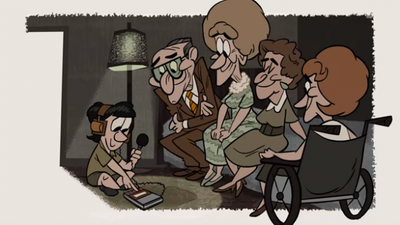DOWNLOAD VIDEO
The Nigerian government and Boko Haram have
reached
a cease-fire after years of fighting and thousands of civilian deaths, according to reports from the region.
Boko Haram is a militant Sunni Islamist group that has operated in Nigeria since 2002. The group aims to create an Islamic caliphate in northeastern Nigeria and has carved out territory in several Nigerian states for that purpose. The group grew out of
discontent
with Western influence in Nigeria along with Nigeria’s government and corruption among public service officials.
The group’s military campaign began in 2009 and since then, thousands of civilians have died by Boko Haram’s bombings, suicide attacks and extrajudicial killings, leading the U.S. to declare it a terrorist organization. The group has been linked to the al-Qaeda terrorist network.
The international community condemned Boko Haram in April for kidnapping 300 young women from a school in Chibok, Nigeria, claiming that their education did not follow Islamic law. Dozens of the girls escaped, though more than 200 remain hostage. The group has kidnapped hundreds of other young people to draft into its militia.
The two sides will hold talks in Chad this week. Similar cease-fire announcements have previously failed to hold, but this one shows promise,
according
to J. Peter Pham, director of the Africa Center at the Atlantic Council.
Both the Nigerian government and Boko Haram have experienced losses and are “fatigued” by the fighting, Pham said.
The group also released a number of hostages earlier this month, including the wife of Cameroonian Vice Prime Minister Amadou Ali and 10 Chinese workers whom it had kidnapped in May. The Nigerian government
says
the group of girls will be released soon, but Boko Haram has not confirmed that statement.
Human rights groups have questioned the Nigerian government’s response to the kidnapping of the girls. Sheik Abdur Rahman, the imam of an Islamic charity, suggested the circumstances don’t make sense.
“How can you move 300 girls, almost 300 girls, you know, in a state or in a region where you have declared a state of emergency, and nobody challenged the movement of the vehicles?” he said.
Warm up questions
- Where is Nigeria?
- Can you give an example of a terrorist organization? Who are they? What are their specific goals?
- What role does communication play in problem solving between two groups who are fighting?
Critical thinking questions
Warm up questions
- Why do you think that the talks are being held in Chad?
- What role do you think the release of Boko Haram hostages has played so far in the new cease-fire? What message does that send?
- What other steps might need to take place in order to reach a peaceful agreement?
- What do you think Boko Haram will ask for during the talks? What do you think the Nigerian government will want? Explain your answers.
- Imagine that you are part of the Nigerian government and you know that over the last decade the terrorist group Boko Haram has killed thousands of innocent citizens. You now have an opportunity to talk with Boko Haram in Chad during a cease-fire. What are your goals for the talk? What challenges might you face when dealing with Boko Haram leadership? Using your answers and evidence from the text, write down what you would say as opening remarks to everyone participating in the talks.


